Among the most discussed events in recent years is the deployment on the territory of Russia, or rather, near Ulyanovsk, of the transportation base of the North Atlantic Treaty Organization. As soon as its appearance was announced, theses began to arise in society that NATO was going to deploy a full-fledged military presence in the Russian Federation. How legitimate were these expectations?
Essence of the question
Why did the Russian public suddenly decide that a NATO base would be opened in Ulyanovsk? In March 2012, a spokesman for the head of the Ulyanovsk Region said that negotiations were held with the authorities of the region with representatives of the North Atlantic Alliance for deployment in the area of a NATO transit point, namely, at the Ulyanovsk-Vostochny airport.
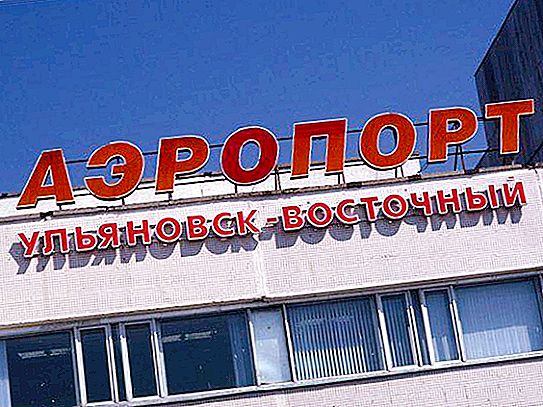
Later, information appeared that the Ulyanovsk region was interested in placing the appropriate infrastructure on its territory due to the use of the transport capacities of local suppliers, as well as the prospects for the formation of new tax payments and the emergence of several thousand jobs. The governor of the region also said that the project has been prepared for a long time, and it is beneficial for the region.
An explanation appeared at the level of higher state institutions of power, according to which Ulyanovsk was to be used as a transit point for aircraft of the North Atlantic Alliance. It was assumed that only certain types of goods would be transported with the use of its infrastructure - in particular, tents, foodstuffs, and medicines. Iraq and Afghanistan were named shipping destinations. NATO military equipment could not be transported through Ulyanovsk.
Society reaction
This information caused a wide public outcry. The population of the region got an occasion to think that a real NATO base was being opened in Ulyanovsk, and began to organize protests. The theses criticizing the position of the Russian authorities began to be actively disseminated in the media. Almost immediately followed by comments from representatives of the Alliance. So, the head of the NATO information bureau, operating in Moscow, confirmed that NATO troops could not be located at all near Ulyanovsk.
Legal framework for cooperation
The interaction between the authorities of the Ulyanovsk region and NATO had a legal basis. It was organized in accordance with the provisions of the Decree of the Government of the Russian Federation “On the procedure for ground transit through the territory of the Russian Federation of military equipment to Afghanistan”, adopted on March 28, 2008. This source of law contains the wordings according to which the corresponding military cargo transportation can go across Russia in a simplified manner. However, many representatives of expert circles continued to insist that the North Atlantic Treaty Organization nevertheless enjoys the loyalty of the Russian authorities, which is not based on current legislation.
What did the public, media representatives and Russian experts fear? First of all, the so-called “transit point” could easily be converted into a full-fledged military base.
Could the point become a military base?
The main argument of the supporters of this point of view was the fact that the infrastructure object with a similar status - a transit center owned by the North Atlantic Treaty Organization in Kyrgyzstan - the US military proposed to rename to the center for providing commercial transit. That is, as some members of the public considered, having located an object formally not directly related to the armed forces on the territory of the Russian Federation, NATO could subsequently transform its status into a different one, less in line with Russia's national interests.
Another public concern was that NATO member countries began to show a suspiciously unhealthy interest in Russia.
Why did NATO need Ulyanovsk?
Representatives of expert circles drew attention to the fact that NATO could well take advantage of more economically advantageous ways of cargo transit bypassing the Russian Federation. So, for example, it was assumed that containers with cargo should first be delivered to Ulyanovsk by air, then loaded onto trains, then redirected to the Baltic coast, and then to destinations. According to analysts, the NATO army could well take advantage of alternative routes, which were significantly shorter.
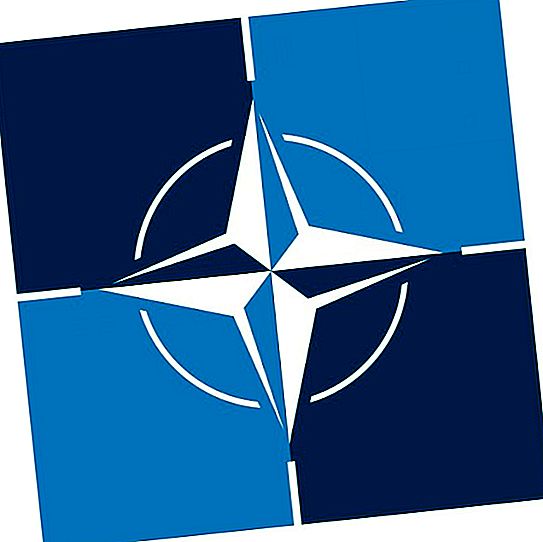
For example, transit through the closest allies of the Alliance in the Middle East or Europe could be requested. The location of NATO bases allowed, thus, to let goods through more economically viable routes. But for some reason, the Alliance began to look for other options with transit. For some reason, NATO countries decided to use the Russian territories, and many members of the public did not like it.
Experts who feared the start of NATO cargo transit through the Russian Federation also drew attention to the lack of tangible benefits for Russia in such cooperation, despite the assurances of politicians that this could help create jobs and increase tax revenues to the budget.
What is the benefit for Russia?
Representatives of the public doubted, therefore, that the transit base of NATO near Ulyanovsk could become a real factor in the positive development of business relations between the Russian Federation and the states of the Alliance, and especially the United States. According to experts, the Americans, with a small degree of probability, could have shown their readiness to evaluate Russia's actions in a full-fledged partnership. Experts did not find obvious economic benefits for Russia in the deployment of a NATO transit facility near Ulyanovsk.
Similarly, representatives of the public did not see the prospects of constructive interaction between the Russian Federation and the Alliance in the military sphere as well.
Are there any prospects for military cooperation?
Many analysts felt that the prospects for military cooperation, on the contrary, could negatively affect Russia's national security. According to experts, the NATO transit base in Ulyanovsk would soon require maintenance and security. Their implementation would involve either engaging the Alliance’s military or hiring Russian security agencies. Experts also feared that the infrastructure for organizing air travel, present in Ulyanovsk, could be used to transit drugs from Afghanistan. Another reason for the analysts' suspicions was the following circumstance: if a full-fledged NATO military base appears on the site of the corresponding transit facility, then it can be used as a place from where the Alliance planes can carry out sorties. And these are geopolitical risks. In turn, experts did not see any obvious preferences for the Russian Federation in terms of solving national security problems.
Russian interests in providing transit
In one of the theses accompanying the prospects for cooperation between Russia and NATO in the project near Ulyanovsk, the idea was expressed that the Russian Federation should maintain transit, as it is interested in keeping the NATO army in Afghanistan and keeping the situation with the spread of extremism under control.
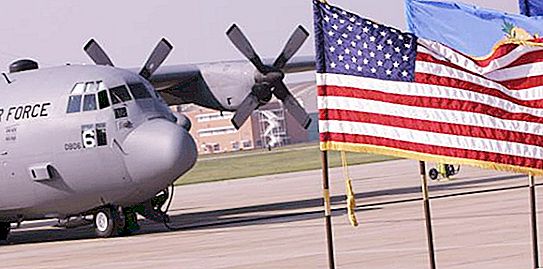
But the activity of the Americans, who have been present in this Middle East state for several years, has given rise to many experts to come to different conclusions regarding the effectiveness of the Alliance’s army location in this region. So, drug trafficking from Afghanistan has grown, as some analysts have calculated, several dozen times. The level of terrorism has risen, and extremist networks have continued to operate.
Washington decided to strengthen position
Assessments of the prospects for cooperation between NATO and the Russian Federation in the framework of the transit through Ulyanovsk in Russian society were presented in a wide range. So, there was a point of view according to which the agreement in Ulyanovsk was interpreted as Washington’s attempt to strengthen its position in the European region, to influence the Russian Federation in order to use its resources in the interests of the Alliance. At the same time, the United States arranged rates for possible transit - for example, the delivery of 1 kg of cargo to Afghanistan, according to some experts, should have cost the NATO budget $ 15.
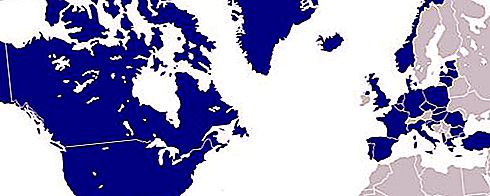
Airlines that were considered as contractors - first of all, it is Volga-Dnepr, as analysts thought, would hardly refuse such offers. Thus, starting from a small organization of a transit base, Washington would try, experts say, to expand the zone of influence of NATO in the Russian Federation, for example, by proposing to purchase some types of supplies from Russian suppliers. What should have been of interest not only to airlines.
The position of the authorities
Many experts hastened to conclude that the Russian authorities - both at the level of a specific region, the Ulyanovsk region, and in Moscow - fully supported the project of cooperation with NATO. And this alarmed members of the general public. Many, for example, did not like the fact that the governor of the Ulyanovsk region was an expert at the Moscow School of Political Studies - at the head of its board of trustees was Rodrik Breytveit, who was chairman of the United Intelligence Committee in the UK. At the level of federal authorities, the Russian-American project, in general, was also supported.
What will the partners say?
After information about the agreement between the Russian Federation and NATO began to be disseminated in the media, some representatives of the expert community felt that such a step could introduce a noticeable imbalance in relations between the Russian Federation and its closest partners - in particular, the CSTO states. A particularly sensitive point in this aspect could be that in 2011, the leaders of the CSTO countries agreed to ban the deployment of military bases on their territory that belong to third countries. According to some analysts, the closest allies of the Russian Federation could have unpleasant questions for the country's leadership regarding such an unusual precedent for interaction with an organization with which Russia often has tangible contradictions in the field of geopolitics.
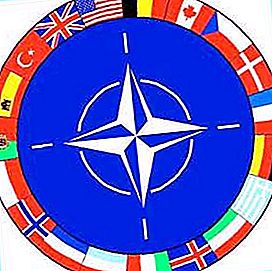
Experts drew attention to the fact that there are very few historical precedents that would indicate that NATO seeks to build partnerships on equal terms with Russia. Quite the contrary, in the recent history of diplomatic communications there are indicative precedents that speak of the opposite. For example, it is known that in 1990, NATO Secretary of State promised that the organization would not move to the East. But NATO bases on the world map, as you know, include several states of the former socialist camp at once. One of them, as analysts suggested, could soon appear on the territory of Russia.
Well, the nature of the doubts and concerns of the experts was then quite understandable. But were NATO forces able to infiltrate the territory of the Russian Federation in reality?
Abstracts and facts
The fears of the experts that we spoke about above did not materialize. Moreover, the assessment of such theses was subsequently given not the most positive. So, some members of the public were accused of almost an anti-state position. One way or another, no NATO military base in Ulyanovsk appeared, although the same transit point was nevertheless formed.
Regarding the thesis that for Russia there was no benefit in placing the corresponding object on its territory, a counterargument was found. So, according to one version, the Russian Federation could use the fact that the NATO transit point is located in its own interests, as a possible tool to influence the Alliance’s position on certain political issues. That is, the NATO representatives, and not their Russian partners, should have been afraid of the negative consequences. At the same time, there was still some political interest in the Russian Federation in organizing cargo transportation through Ulyanovsk: if Russia refused to cooperate, then the Alliance would most likely turn to Georgia. And this would mean a stronger NATO military presence in the region.
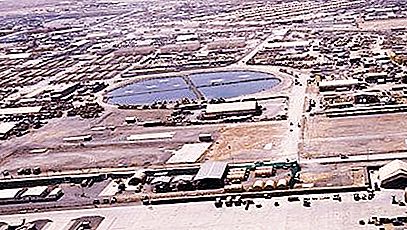
Regarding the thesis that NATO had more advantageous alternatives to organizing cargo transportation, a counterargument was also found. The fact is that one of the key reserve routes - through Pakistan - could, due to the changing geopolitical situation, be closed. There could be no real alternatives to him within a reasonable time - even if the scenario with the use of transit bases in Georgia would be activated.
Consider other significant conclusions of experts who criticized the positions of experts who feared the negative consequences of the presence of a NATO transit point in the Ulyanovsk region. So, it is emphasized that the goods that must go through Ulyanovsk are subject to mandatory inspection by the Russian customs authorities. Military experts from NATO countries are not involved in this process. The main feature that characterizes any NATO base in Europe or another region of the world is significant sovereignty with respect to the jurisdiction of the state hosting the military from the Alliance. That is, access to NATO bases for the authorities of the country that allowed their construction, as a rule, is very limited. The transit base in Ulyanovsk did not meet this criterion in any way. NATO could not forbid the Russian authorities to control the activities of the corresponding facility.
Base usage activity
The transit base of the Alliance near Ulyanovsk was opened. But practically it was not involved in any way. At the very least, there are no facts available to the general public that would reflect its regular use. According to some NATO analysts, in reality it turned out to be not very profitable to interact with partners from the Russian Federation. Moreover, assessments of this state of affairs are very different. NATO representatives say that it is expensive to transport goods through the Russian Federation, and Russian military experts believe that the Alliance countries did not dare to make themselves dependent on the infrastructure in the Russian Federation.




